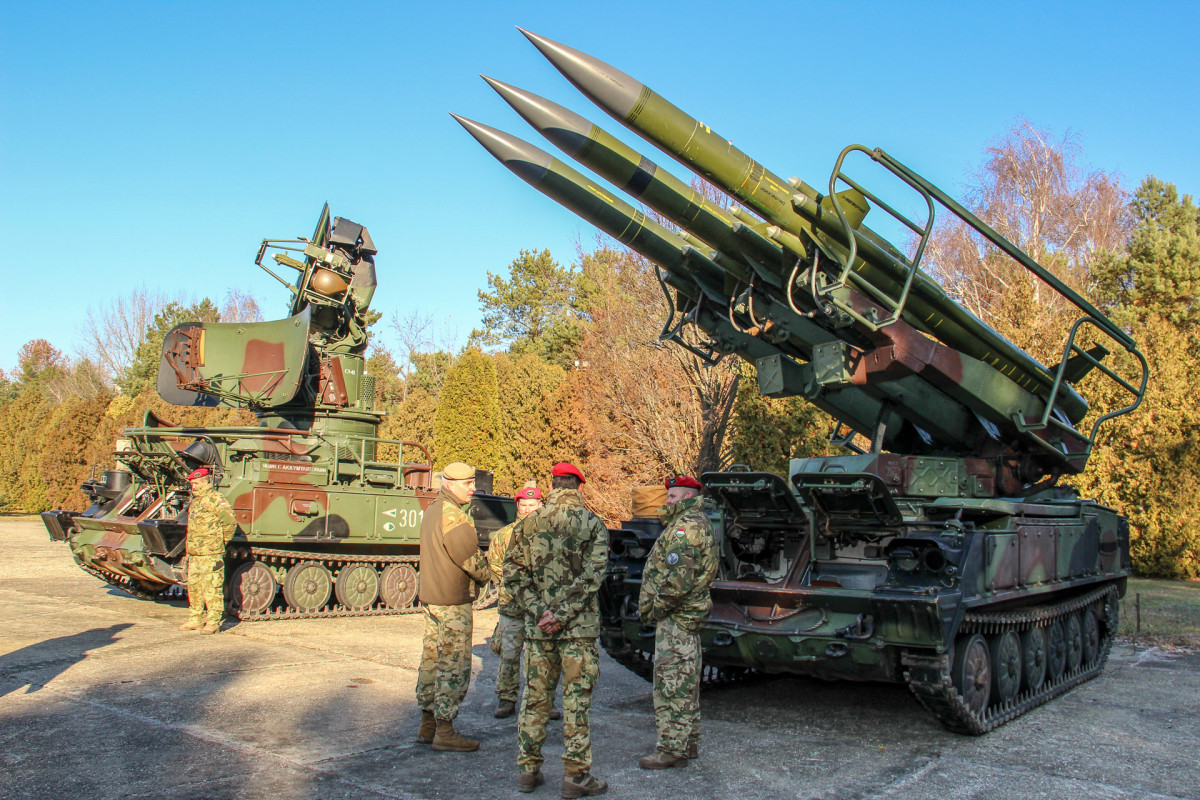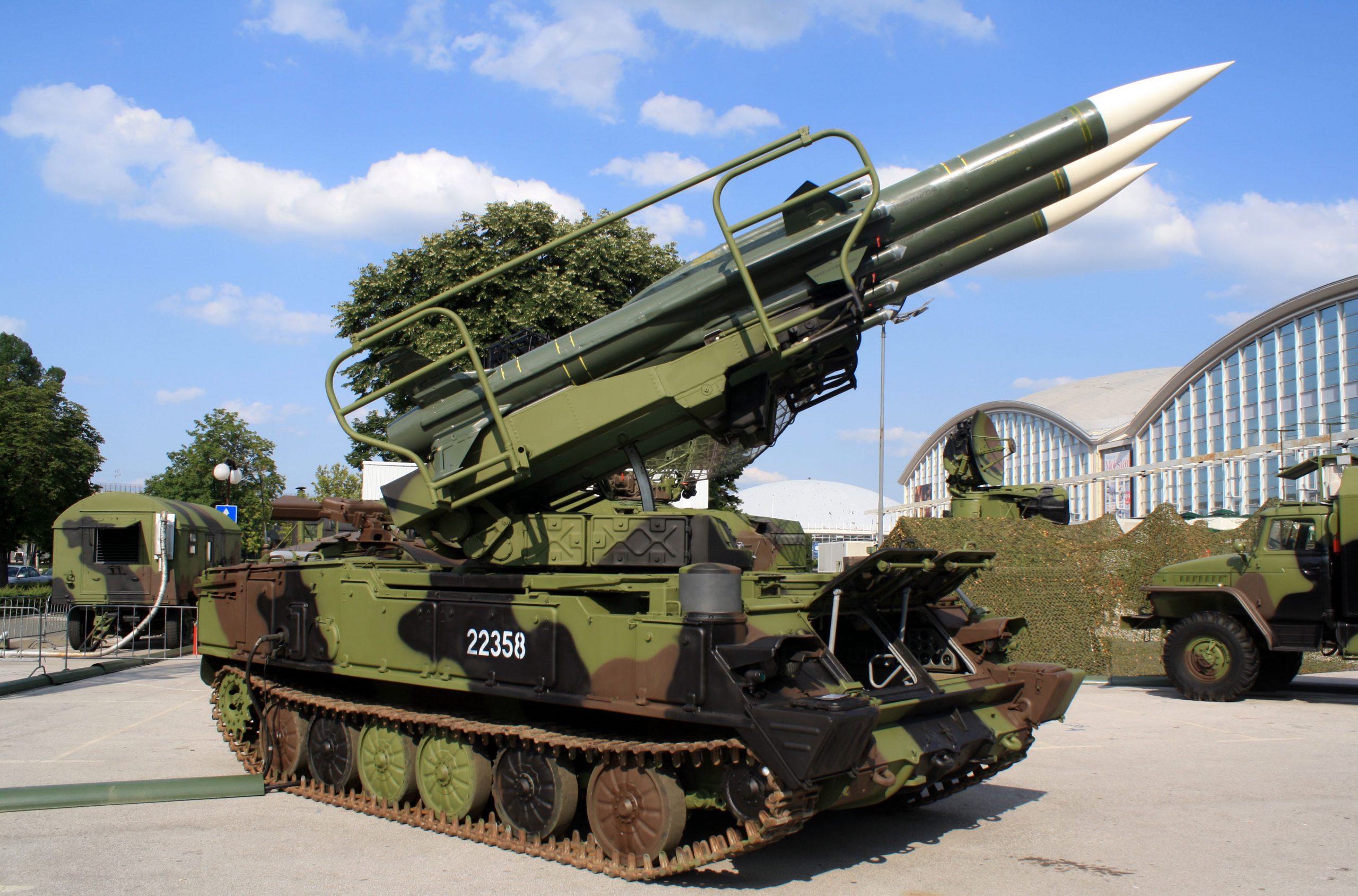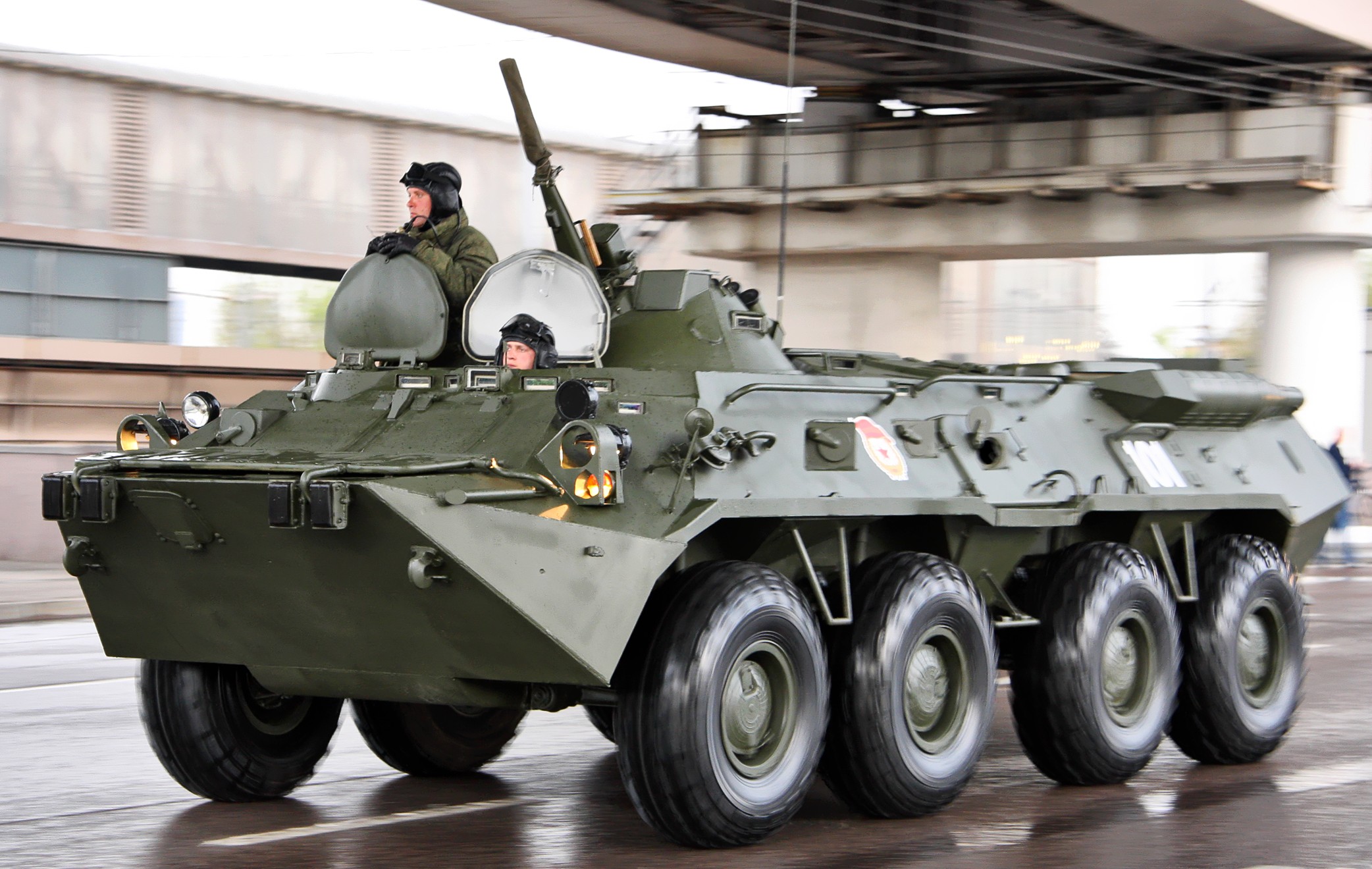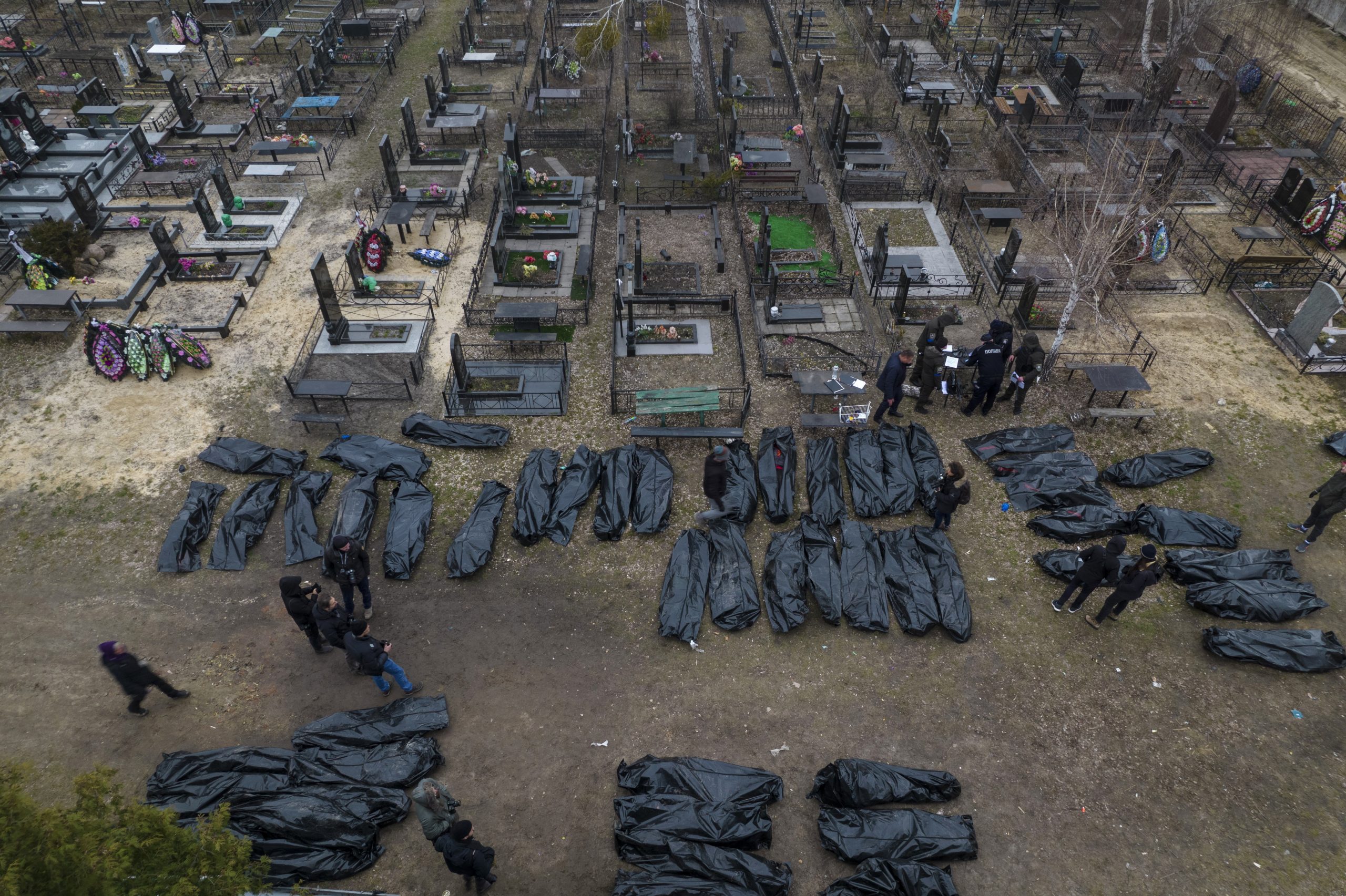bloodshed, but its a new Balkan bloodshed as next that Hungary supports. Serbia became a super purchaser of any weapons one could get a hold of - even outdated which are afterwards being modernized/upgraded and for which Hungary hopes will get opportunity to resolve through preferred conflict on Balkans thus repositioning itself again as a colonial power. Nobody in Hungary tried to even stop Orban/Suijjarto and all the Hungarian candidates knew about Hungarian politics on Balkans and Ukraine far in advance.
Serbia Purchases Essential Air Defense Equipment from Hungary

Serbia has purchased air defense system elements from Hungary. The 2K12 KUB was developed in the Soviet Union in the 1960s, but was modernized jointly by the Hungarian and Polish defense industries in the 2000s. A similar deal between Hungary and Serbia has been concluded in recent months, reports Magyar Nemzet, based on the Serbian website Srbija Danas.
Serbia is buying components for its 2K12 KUB air defense system from Hungary. According to the newspaper, it is about the RStON 1S91M target detection and tracking radar stations, which suffered the most from the mass strikes of AGM-88 HARM high-speed anti-radar missiles during the NATO air campaign against Yugoslavia in 1999. Their procurement is necessary to activate the missile systems of the existing 2K12 KUB missile classes of the Serbian Air Force and Air Defense. The Serbian Armed Forces maintain three KUB-M classes in the framework of the 250th Air Defense Missile Brigade, deployed in Novi Sad (Újvidék), Kragujevac, and Niš.
The army is planning to set up a new sub-unit in Kraljevo, also requiring the purchase of second-hand radio-electronic vehicles.

2K12 KUB mobile surface-to-air missile system is designed to protect ground forces from air attacks. Photo via Wikipedia
The KUB was the first Soviet-developed, semi-active, self-guided air defense missile system to be developed on a regular basis and was intended to protect mechanized divisions in close cooperation with them. According to the Serbian portal, the air defense system excelled in destroying low-flying fighter aircraft in the Middle East in 1973, and was placed on the Yugoslav People’s Army’s procurement list, with the first units arriving in the country in 1975.
The KUB weapon system has been in use in Hungary since the late 1970s, and some of the equipment was modernized jointly by the Hungarian and Polish defense industries between 2001 and 2002. The self-propelled target detection and tracking stations and the launchers have undergone life extension and upgrading.
A similar deal between Hungary and Serbia has already been concluded in recent months, when Serbia purchased 26 BTR-80A armored infantry fighting vehicles from Hungary.
It turned out then that Hungary had acquired more than half a dozen of these combat vehicles in the 1990s, but they no longer meet Hungary’s long-term defense needs, which is why the leadership has sold a small number of them.

The BTR-80. Photo via Wikipedia
The modernization of the Hungarian Defense Forces is also behind the sale of the equipment.
In October last year, the first two batteries of the NASAMS air defense system were handed over in Győr (northwestern Hungary), in the barracks of the Tibor Dánielfy 205th Air Defense Missile Regiment. The manufacturer will deliver another four NASAMS batteries and the technical equipment for a reserve sub-unit by summer 2024. In addition, the delivery and installation of the Israeli ELM 2084 multifunction radars, representing the “eyes” of the well-known Israeli Iron Dome system, is underway. Hungary is also involved in the acquisition of Hero loitering munitions (better known as ‘kamikaze drones’), designed by the Israeli company UVision and manufactured by the German company, Rheinmetall.
Putin First Shared His Opinion on Bucha War Crimes with Orbán

Russian President Vladimir Putin first shared his opinion on the war crimes committed in Bucha in his phone call with Prime Minister Viktor Orbán, describing the issue as “a rough and cynical provocation from the Kyiv regime.” Orbán spoke about the phone call in a press conference on Wednesday, but failed to mention that the Russian president spoke about the event.
Liberal economic news portal hvg.hu shared the Kremlin’s summary of Orbán and Putin’s telephone conversation published Wednesday afternoon. According to the briefing, Putin described the massacre of Ukrainian civilians in Bucha as “a rough and cynical provocation,” from the Ukrainian government.
Video and Photo Evidence Shows Civilians Killed in Bucha
Bucha was captured by Russian troops after Putin ordered the invasion of Ukraine on February 24. After these troops withdrew more than a month later, photos and videos revealed dozens if not hundreds of murdered civilians, some of them appearing to have been shot in the back of the head after their hands were tied.
The Ukrainian government accused Russia of genocide, an accusation which the Russian government rejected.
The Russian Ministry of Defense claimed that the bodies were placed in the streets after Russian troops withdrew on March 30, but evidence shows otherwise. Russia even claimed that the footage was staged, depicting “fake dead bodies.”
The Times’ review of videos and satellite imagery found that many of the civilians were killed more than three weeks ago. Germany’s Federal Intelligence Service shared intercepted messages of Russian communications with the German government, in which Russian soldiers can be heard discussing the killings of Ukrainian civilians. In one message, Russian soldiers appear to be discussing interrogations before shooting their victims, in another, a Russian soldier talks about shooting a person on a bike.
Putin First Shared His Opinion on Bucha War Crimes with Orbán

Russian President Vladimir Putin first shared his opinion on the war crimes committed in Bucha in his phone call with Prime Minister Viktor Orbán, describing the issue as “a rough and cynical provocation from the Kyiv regime.” Orbán spoke about the phone call in a press conference on Wednesday, but failed to mention that the Russian president spoke about the event.
Liberal economic news portal hvg.hu shared the Kremlin’s summary of Orbán and Putin’s telephone conversation published Wednesday afternoon. According to the briefing, Putin described the massacre of Ukrainian civilians in Bucha as “a rough and cynical provocation,” from the Ukrainian government.
Video and Photo Evidence Shows Civilians Killed in Bucha
Bucha was captured by Russian troops after Putin ordered the invasion of Ukraine on February 24. After these troops withdrew more than a month later, photos and videos revealed dozens if not hundreds of murdered civilians, some of them appearing to have been shot in the back of the head after their hands were tied.
The Ukrainian government accused Russia of genocide, an accusation which the Russian government rejected.
The Russian Ministry of Defense claimed that the bodies were placed in the streets after Russian troops withdrew on March 30, but evidence shows otherwise. Russia even claimed that the footage was staged, depicting “fake dead bodies.”
The Times’ review of videos and satellite imagery found that many of the civilians were killed more than three weeks ago. Germany’s Federal Intelligence Service shared intercepted messages of Russian communications with the German government, in which Russian soldiers can be heard discussing the killings of Ukrainian civilians. In one message, Russian soldiers appear to be discussing interrogations before shooting their victims, in another, a Russian soldier talks about shooting a person on a bike.



No comments:
Post a Comment